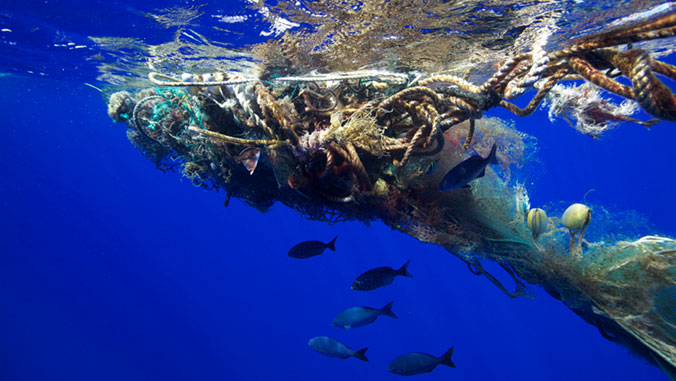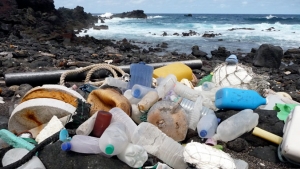
Plastic pollution is a planetary threat, affecting nearly every marine and freshwater ecosystem globally. Megan Barnes and Jeremy Ringma, former postdoctoral researchers in the department of Natural Resources and Environmental Management (NREM) in the University of Hawaiʻi at Mānoa College of Tropical Agriculture and Human Resources, took part in an international study determining that, even with multilevel mitigation strategies in place to combat plastic pollution, extraordinary efforts must be put in place to reduce plastic emissions by 2030.
The study, “Predicted growth in plastic waste exceeds efforts to mitigate plastic pollution,” was published in Science. The team assessed the impact of three broad management strategies, plastic waste reduction, waste management and environmental recovery, at different levels of effort to estimate plastic emissions by 2030 for 173 countries.

Barnes and her colleagues estimate that 19.3 to 23.4 million metric tons, or 11 percent, of plastic waste generated globally in 2016 entered aquatic ecosystems. Even considering the ambitious commitments currently set by governments, annual emissions may reach up to 53 million metric tons per year by 2030.
“As a cross boundary issue, it can seem really daunting, but there are solutions at all levels of government in every country, that every business can implement, and that each person can support in their personal decisions, and by talking to their own communities and representatives,” said Barnes.
Barnes added, “The work really pointed out that no one solution is a silver bullet.” She also emphasized that what is really scary is the huge volume of plastic that will continue to leak into the ocean even if ambitious targets are met.
Living in Hawaiʻi and seeing first-hand the global impacts of plastic on local shores, while a postdoc at NREM, empowered Barnes to utilize her education and skills towards making a difference in the global challenge of plastic pollution.
“To stem the tide of plastic, we need structural and individual changes to reduce consumption, economic transformation to place greater emphasis on waste recovery, low leakage waste management that doesn’t impact other important environmental goals such as climate change, and broad scale innovation in clean up solutions,” said Barnes. “Even if we do everything else perfectly, even a small proportion of the plastic waste we create results is large amounts of plastic in the ocean, so innovative solutions are needed in all parts of the plastic waste pipeline.”

